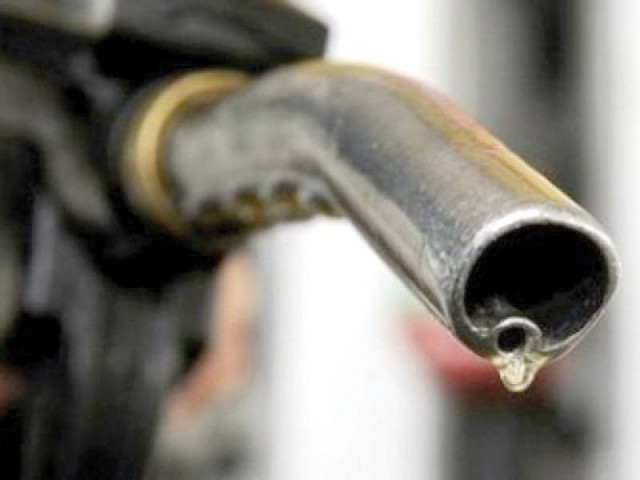Diesel sales: Consumers at mercy of OMCs who can now fix profit margins
Govt also eases condition for exporters seeking incentives under PM’s Rs180b package

The ECC also decided that OMCs would introduce fuel marking in diesel at the depot stage in the next six months to avoid adulteration. PHOTO: FILE
The decision came following Oil and Gas Regulatory Authority’s (Ogra) warning that any manipulation of margin deregulation by the OMCs and dealers would have a direct impact on the consumers.
In a meeting of the Economic Coordination Committee (ECC) on Friday, chaired by Prime Minister Shahid Khaqan Abbasi, the Ministry of Finance argued that the government had been keeping petroleum prices unchanged or passed partial increase on to consumers, but margin deregulation would affect the state policy.
On its part, the Federal Board of Revenue (FBR) pointed out that it had been collecting taxes on the sale of petroleum products, but deregulation would affect the tax system.
The ECC also approved an increase of Rs0.14 per litre in OMC margins on petrol sale and increased dealer margins by Rs0.19 per litre.
According to a statement issued after the meeting, the ECC approved a proposal for deregulating the margins on diesel sale under the policy of liberalisation and deregulation. It would review its impact after three months.
The ECC also decided that OMCs would introduce fuel marking in diesel at the depot stage in the next six months to avoid adulteration. Ogra would establish a mechanism to monitor commercial stock position of the OMCs, inventory system of the dealers and the fuel marking system.
Export package
In an effort to push dwindling exports, the ECC gave the go-ahead to a proposal that called for providing 50% of the prime minister’s export package incentive to eligible textile and non-textile exporters on the same terms as provided for January to June 2017 without the condition of 10% increase in shipments.
Former prime minister Nawaz Sharif had announced a Rs180-billion export package to give a boost to the country’s shipments to overseas markets.
However, the remaining 50% of the incentive will be provided if an exporter increases shipments by 10% or more compared to the corresponding period of previous year.
The ECC allowed an additional 2% duty drawback for exporters that sent their goods to non-traditional markets. Apart from this, expeditious settlement of payment claims by the State Bank of Pakistan was also approved.
Various measures for import rationalisation and slashing the import bill were suggested by the Commerce division and the FBR. In this regard, a detailed list of import goods would be reviewed and finalised.
The ECC approved a Commerce Division’s proposal for allocating 12 million kg of surplus tobacco to the tobacco companies and dealers.
It gave provisional approval to government’s sovereign guarantee for Rs39-billion financing for the construction of two 660-megawatt coal-fired power plants in Jamshoro, depending on third-party evaluation especially pertaining to the demand- supply situation.
Subsidy for tube wells
The ECC extended the subsidy time frame for agricultural tube wells in Balochistan to the end of December 2017 subject to the commitment of outstanding payments by all concerned on the same terms and conditions as approved on June 17, 2015.
Currently, the government has to receive Rs150 billion from farmers on account of electricity supply to their tube wells.
The approval was linked with a comprehensive review to shift the tube wells to solar power in order to save electricity bills and the state subsidy cost.
The need to put in place efficient irrigation methods like drip irrigation was also emphasised.
The ECC extended the period for imposition of a reduced 0.4% advance income tax on banking transactions made by non-filers of income tax returns, under Section 236P of the Income Tax Ordinance 2001, to December 2017.
Published in The Express Tribune, October 7th, 2017.
Like Business on Facebook, follow @TribuneBiz on Twitter to stay informed and join in the conversation.


















COMMENTS
Comments are moderated and generally will be posted if they are on-topic and not abusive.
For more information, please see our Comments FAQ